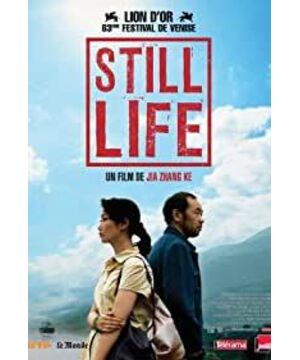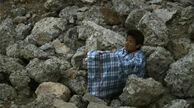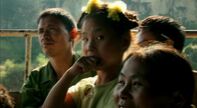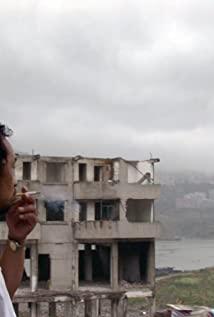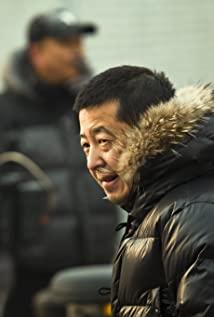There is probably a kind of interpretation that will put together "The Good Man of the Three Gorges", "The Story of the Three Gorges", "Demolition" and other styles together to form a "Farewell to the Three Gorges Tour", which can also witness that the change of the Three Gorges is not an exclusive discovery. . In this sense, the Three Gorges theme is too easy for a filmmaker. A city of two thousand years, destroyed in two days - these landscapes seem to be a major element of moving people's hearts, and even reminiscent of some family backgrounds, but that seems to have little to do with Jia Zhangke's films. Of course, it's okay to say yes. The scene is made in heaven, without CG or explosives, without spending money to build and tear down, break brick by brick, and leave time to pose for you to shoot. Jia Zhangke meets the Three Gorges once in a thousand years. If the thieves do not fight, Jia Zhangke's characters should not go to the Three Gorges to find people. In other words, Jia Zhangke really ate the guts of a leopard when he dared to take his two masters to the Three Gorges.
Of course, there will always be people who meet the Three Gorges, not Jia Zhangke, but others. Fortunately, Jia Zhangke. (Why it is him, not Zhang Ming or others, may be another mystery.) In the film, the protagonist is sad in the Three Gorges, but it is not caused by the Three Gorges (the audience's sadness is mostly caused by the Three Gorges). Also as a passer-by, Jia Zhangke doesn't have much nostalgia for the Three Gorges in Tang poetry and Song poetry. When the music of "Shanghai Bund" and "Two Butterflies" sounded, it was really hard not to be touched by seeing all the living beings in the crowd. The reason why Du Qifeng said that Jia Zhangke wasted such a subject may be because, when the good Hong Kong man in "Exile" is put here, the western style under Guanyin Mountain is obviously not as breathtaking as the rocky cliffs of the Three Gorges. Even if Bai Liusu and Fan Liuyuan were to stand before Kuimen, it would still be an even better story.
Perhaps the Three Gorges is the same kind of fiction as the UFO in this movie. The difference is that the UFO is fictionalized from an epiphany, and the Three Gorges is this world-defining "fiction" that goes against the sky. Those that strayed, flew away, and disappeared in one day are actually unreasonable: the Three Gorges is a super UFO. The Three Gorges under demolition is also a small troubled time. Jia Zhangke can continue to play the dream of a young boss, or the persistence and choice of a common man in another arena that is more like a river. Jia Zhangke at this time is the beloved Jia Zhangke.
One Three Gorges did not prevent "The Good Man of the Three Gorges" from becoming a Jia Zhangke-style film, but it could easily become a trick for others to misread him. Jia Zhangke is actually in a tug-of-war with the Three Gorges. Judging from the reactions of some audience members, it is Shanshui who grabs the limelight. But Jia Zhangke in this wrestling is better than walking in the courtyard. He doesn't have to care about the grass and trees like the locals. Instead, he can move freely in the huge background, and the teenager usually hums unconsciously: Dear, you fly slowly. No matter how the world changes, his characters choose or give up, and the mountain collapses before him without making a sound. Zhao Tao also said that standing in front of Kuimen, she wanted to jump off. I believe. Facing the Three Gorges and jumping, this is also Jia Zhangke's attitude.
Strangely, as a person who grew up in the Three Gorges, I don't have much skin-to-skin feeling for the movie. The long whistle of those ships occasionally reminds me of childhood and youth. But this Three Gorges is no longer the other Three Gorges, and the Guyuan Road is not a long way. When I go back to the Three Gorges again, will I pay tribute to Jing's deceased like Han Sanming? unknown. It doesn't matter who abandons who, we all become prodigal sons. At least, thanks to Jia Zhangke for taking pictures for the Three Gorges, wiping sweat for fellow villagers, and evoking the soul of the motherland.
View more about Still Life reviews


